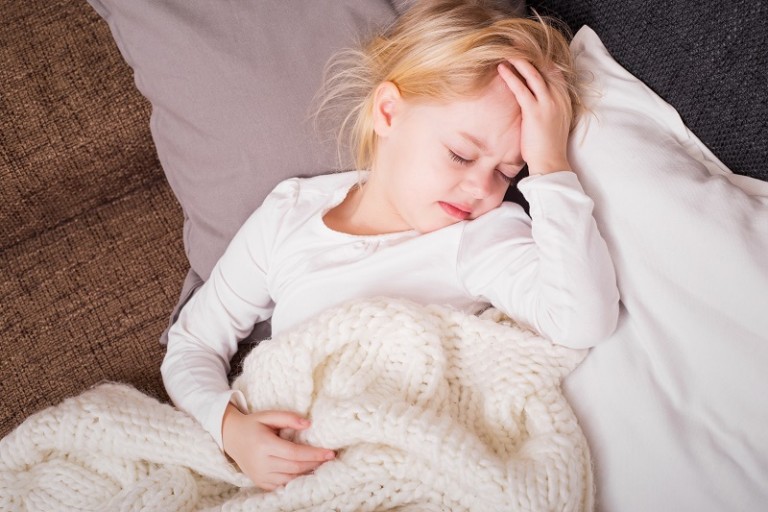Advice from Dr. B
Pediatrician's Perspective
Pediatrician's Perspective

Most moms can spot the signs of their child’s constipation, such as avoiding the potty and painful poops. But can you spot some of the not-so-obvious signs your child may actually be constipated?
Bed-wetting (wetting at night during or around sleep) or accidents (wetting during the day), especially after the child is potty-trained can be a sign of constipation. This can happen even after the child has been fully potty-trained. When the child has a large stool sitting in their lower abdomen, they feel constant pressure there whether they can tell you or not. They can sense that any movement or bearing down, like with peeing, can cause that stool to pass. When the child tries to avoid the pain, their body withholds the stool and also holds in the urine. The bladder then overflows and, combining with a of lack of space in the lower abdomen, the urine will flow out uncontrollably causing an “accident.”
Loose, watery stools—also called diarrhea—surprisingly can occur in constipated children. How is this possible? It starts as one or more episodes of constipation. The child remembers this as a painful or bad experience and most likely will not or cannot communicate what they feel to the parent or caregiver. Instead, the child tries to avoid pooping and holds it in. This causes more water and intestinal contents to leave the stool and leak into the body. As a result, the stool becomes hard and stuck, making it more difficult to pass out of the body. The child keeps eating and more poop is created that needs to be eliminated. In this case, liquid stool may then leak around the stuck stool mass, resulting in staining of the underwear. Parents may think this is a pooping accident and not a sign of constipation, which is an easy mistake to make.
Constipation can look like the symptoms of the stomach flu. Nausea, vomiting, complaints of stomach pain and diarrhea and soiling are signs that both conditions share. Constipation will not come with a fever. Stomach flu sometimes does. Lack of appetite is also a sign of both. The child may not be able to tell you exactly how they are feeling, so you may not know for sure if it’s constipation or an illness. It is best to talk to your child’s doctor or other health care professional to make sure an infection is ruled out.
Urinary tract infections (UTIs) can also be a sign of constipation. As explained above, when children have large, impacted stools sitting in their lower abdomen, they feel constant pressure there whether they tell you or not. If they hold in urine to avoid the pain of bearing down or pooping, this can lead to a UTI. To make things worse, if the child is uncontrollably soiling their underwear due to loose fecal matter passing around the impacted stool, this also can cause a UTI.
Sometimes constipation can show up as small changes in your child’s behavior. These are some behaviors to look for:
These behaviors are often seen in toddlers and infants who are unable to express the exact pain and feelings they have. If you think your child is constipated, talk to their doctor and ask if Pedia-Lax may be right for them.
If you see the signs described above, the child has not had a normal poop in 24 -36 hours and the child does not have fever, you can try increasing the child’s hydration with water and/or prune or pear juice. If they still don't poop, Pedia-lax® products such as the chewable tablets or liquid stool softener can be used as directed for children 2 years old or older. If the problem and symptoms persist or worsen within a 24-hour period, you must contact the doctor.
It is always best to talk to your child’s doctor to make sure you are taking the right course of action and to rule out any serious medical condition.